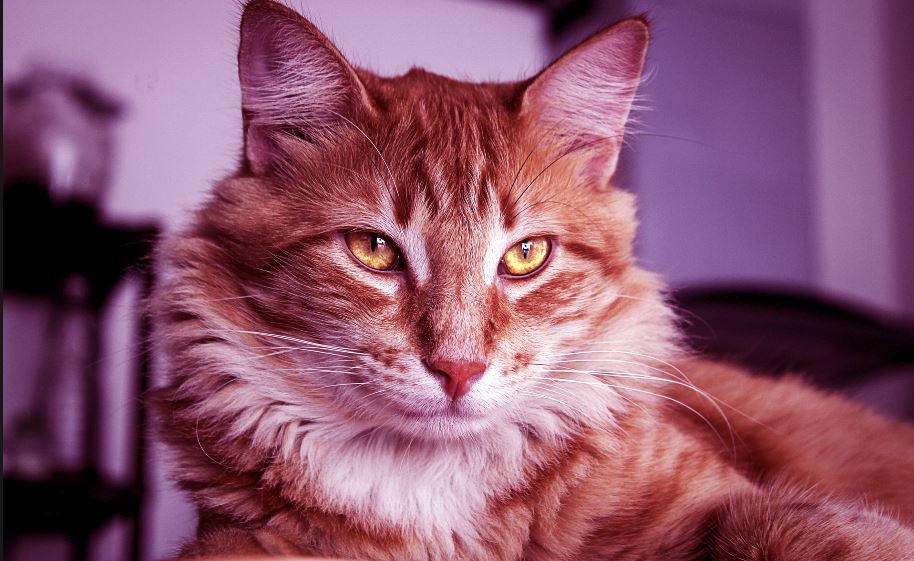Though no magic was cast upon their human caretakers, cats can claw their way up into our hearts and make us love them despite their aloof disposition. For years, no scientist nor expert veterinarian has cracked the code for this phenomenon, but one cat breed, namely the Maine Coons, may have a feasible reason for being the 2nd most popular breed. It might be their overall fluffy appearance that cat lovers find impossible to resist or their familial attitude.
Whatever it is, Maine Coon fans have only one thing to say: this adorable fluffy cat giant is something to behold. And it’s not just their appearance we’re talking about! This type of cat has been well-known to be more sociable (read more), friendly, and affectionate than their stiffer counterparts. Want a feline that would rarely spurn you and provide you with the gift of a fluffy tail and paws? Read on to find out if this fluffy character has a place in your home!
Tips In Caring For Your Maine Coon
1. A Well-Balanced Diet
Main coons are an active breed, large and able-bodied, but as gentle and playful as a kitten. Thus, it makes sense to feed them larger portions of food, although just enough to give them their daily energy and nutrition and not cause obesity. Kibble or dry food is an ideal all-day food many owners grant plentiful access to. Wet or canned foods are usually given to Maine coons thrice a week on top of kibbles.
Some owners, mostly the ones who can afford more expensive preferences, prefer to give their Maine coons only wet food. Cats love wet food, and thus it evokes more delight and satisfaction on their part. The bottom line is the diet of a Maine coon pet depends solely on the owner and their capabilities.
However, beware that some cats of this breed can eat larger portions and fast. This can cause stomachache, malnutrition, and long-term obesity if not addressed early. As an owner, one way to combat this is to give small but frequent meals (up to 5 times a day if they get fussy). Usually, your Maine coon would appreciate an extra can. Nevertheless, this isn’t recommended for adult cats that tend to put on more weight. You can opt for organic snacks with fewer carbs instead.
Protein is one of the main key players in this cat’s diet. They’re more active compared to other breeds, so building up muscle is important in their life. Fats and carbohydrates are also important. However, protein should consist of more than half of a Maine coon’s meal.
2. Clean Water Is Very Important
If you’re a long-time cat owner, you will notice your cat drinks very little water. It can even evoke many concerns as an owner. However, it’s in a cat’s nature to drink lesser than canines, but it doesn’t mean you do not need to provide them with clean, freshwater all the time. Did you know that water is as important (link: https://fediaf.org/39-prepared-pet-foods/92-the-importance-of-water-in-your-pet%E2%80%99s-diet.html) to a cat’s body as that in a human’s? It can prevent dehydration, a condition very difficult to detect in cats (especially if they aren’t vocal).
3. Provide A Larger Litter Box Than Usual
The simplest reason why Maine coons need larger litter boxes other than their body mass is to provide them with wiggle room to be comfortable enough to poop in. They also need a little elbow room so they can bury their excretion properly under the sand. As to the location, it depends solely on where your cat is comfortable staying around, be it in the kitchen or near the living room. Just make sure it’s nowhere near noisy appliances that can potentially disturb them.
Some cats need two litter boxes to do their two businesses: pooping and peeing. Some prefer the place their poop and pee are separate, though less fussy Maine coons don’t mind a single litter box. Again, it takes a little experimenting and hit and miss for a few days before you can get the hang of your cat’s habits.
4. Your Cat Needs Exercise, Lots Of It!
Your Maine coon is typically active during dawn and dusk. However, some develop ungodly sleeping hours, which can impede you from restful sleep. You can somehow control your cat’s activeness during the day by providing lots of activity that will eat away their stamina. A spent cat in the evening can snooze with you until dawn with little to no disturbances. This is where their exercises come in.
Maine coons are avid climbers, and this becomes one hobby you’d like to take advantage of with cat apartments, tall scratch posts, or cat castles and trees. Other than that, these cats enjoy walks a lot and have little to no problem with socializing with other cats and humans in the cat park or daycare. It’s recommended to build this habit from a very young age so your Maine coon will grow healthier in the future.
5. Enjoy Your Maine Coon’s Company
These cats are the very rare ones that easily get lonely after extended periods of solitude. Sure, cats are aloof and lonesome by nature, but vets recommend you spend a lot of time with your Maine coon pet. They get attached to the human they’re always around, and once they set their sights on you as their official human, they’ll be more than happy to follow you around and participate in whatever activity you’re doing.


